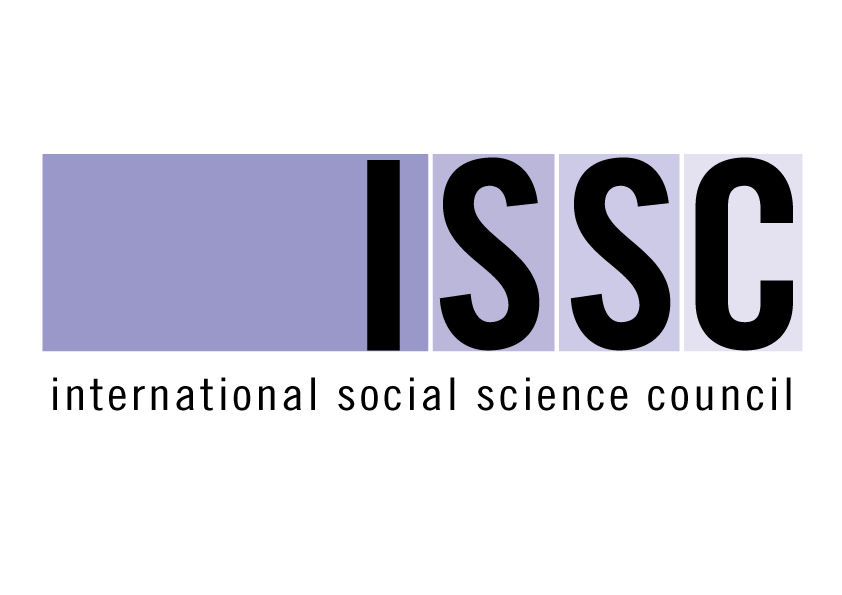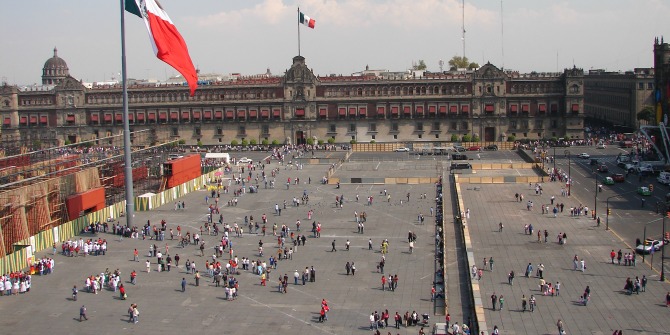 Next week, social scientists from around the world will gather to discuss how digital landscapes are shaping social experiences, inside and outside academia. The International Social Science Council looks forward to hosting a range of interdisciplinary panels on social transformation, the digital human, and knowledge translation.
Next week, social scientists from around the world will gather to discuss how digital landscapes are shaping social experiences, inside and outside academia. The International Social Science Council looks forward to hosting a range of interdisciplinary panels on social transformation, the digital human, and knowledge translation.
On the 13th October in Montréal, the International Social Science Council will convene the World Social Science Forum — billed as a global platform for researchers, funders, policymakers, and other stakeholders to debate topics of world significance and to determine future priorities for how social science is undertaken. The three day forum is hosted by a consortium of Canadian partners, and led by the International Political Science Association of Canada.
The future of the Web is the future of the world, because everything we do today involves the net and everything we’ll do tomorrow will require it. — Cory Doctorow

In this era that we live in, the topic of “Social transformations and the digital age” becomes more and more relevant — not only to the way they influence different aspects of social life, but also how they transform the social sciences that we partake in. The reminders of an ever-changing social landscape are constantly in front of us. From the role of social media in an Arab Spring, the digitization of medicine, to the way the unwritten rules of journalism are being redefined, to digital gaming and the new transformations in military warfare, to social movements and activism Wikileaks, Anonymous, IdleNoMore, and the Occupy movement). These social transformations and a host more, will be the subject for social scientists in Montréal.
More and more our lives are becoming more digital. And increasingly the social sciences will be asked and expected to comment on it. The World Social Science Forum in Montréal not only brings the perspectives of scientists — but also of artists, philosophers and all those that have a stake in our new digital lives.
Robert Darnton, Director of the University Library at Harvard has previously asked the question of how to build a library without walls — “Today, thanks to the Internet, we can open up that world to all of our fellow citizens.” He shall headline a panel on improving access to knowledge for people throughout the world, access unfettered by commercial and political interests. This plenary will be moderated by renowned CBC broadcaster and journalist Paul Kennedy.
Artist and philosopher Hervé Fischer, co-founder of the Hexagram project will pose the question “What is human and what is humanity in the digital age?” Yanick Villedieu, a journalist that specialises in science and medicine will moderate the panel discussion that explores the sociology of humanity in the digital age. The forum also serves as a moment to acknowledge and pay tribute to some exceptional social scientists — with the awarding of this year’s 2013 Stein Rokkan Prize for Comparative Social Science Research and the 2013 Mattei Dogan Prize for Excellence in Interdisciplinary Research.
The forum endeavours to be not just about the science, the National Film Board of Canada will hold workshops and presentations on “film as a tool of social transformation” and will also host a special screening of Alanis Obomsawin’s The People of the Kattawapiskak River on Monday October 14. The documentary, recounting the housing crisis of the Cree community of Attawapiskat and the emergency state declared by its chief Theresa Spence, will be followed by a discussion with the director and Ravida Din, Director of English programs at the NFB, as well as other guests.
This year’s World Social Science Forum is shaping up to be a unique event and we look forward to welcoming participants to the stunning city of Montreal. Be sure to follow the discussions online at wssf2013.org or on twitter via the hashtag #WSSFMontreal
This article first appeared at the LSE’s Impact of the Social Sciences blog.
Please read our comments policy before commenting.
Note: This article gives the views of the author, and not the position of USApp– American Politics and Policy, nor of the London School of Economics.
Shortened URL for this post: http://bit.ly/1cE0HqR
_________________________________________
The International Social Science Council (ISSC) is a membership-based international scientific organisation. The ISSC represents the social, behavioural, and economic sciences at a global level, and aims to bring the best social science to bear on the biggest social challenges of our times. The ISSC secretariat, based at the UNESCO complex in Paris, is a small group of dedicated professionals who work hard to give the social sciences a voice, and who conduct a select range of programmatic activities.







Today’s students are tomorrow’s pioneers. Occupations in STEM-related professions are probably the quickest developing and best paid of the 21st century, and they frequently have the best potential for work development. The most ideal approach to guarantee future achievement and life span is to ensure that the students are well versed in these subjects. Building a strong STEM Foundation through a balanced educational plan is the most ideal approach to guarantee that understudies are presented to math, science, and innovation all through their instructive profession. The craze for STEM Learning has now significantly increased in young students. The universities are coming up with various STEM Learning Programs in collaboration with other institutions & researchers. The STEM Learning Ecosystems have a vast potential to teach the young students in masses. Every year students are applying for these programs in a big number because of the real-time practice and to represent their talents.